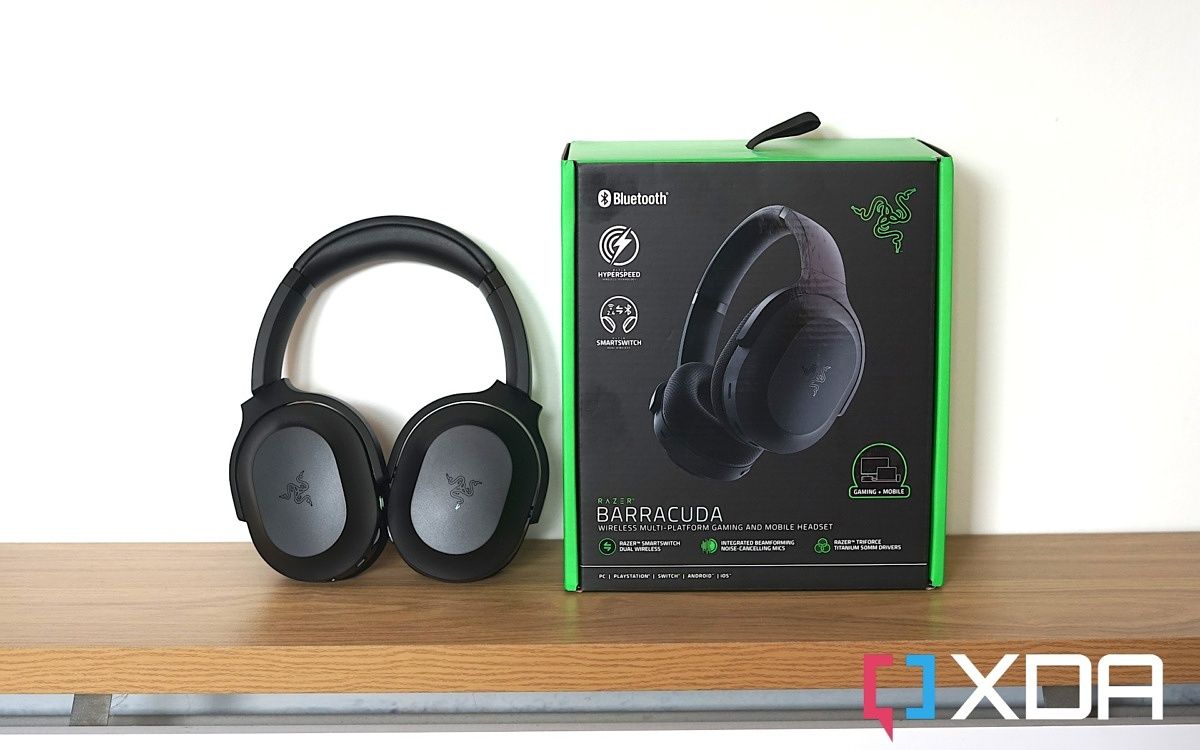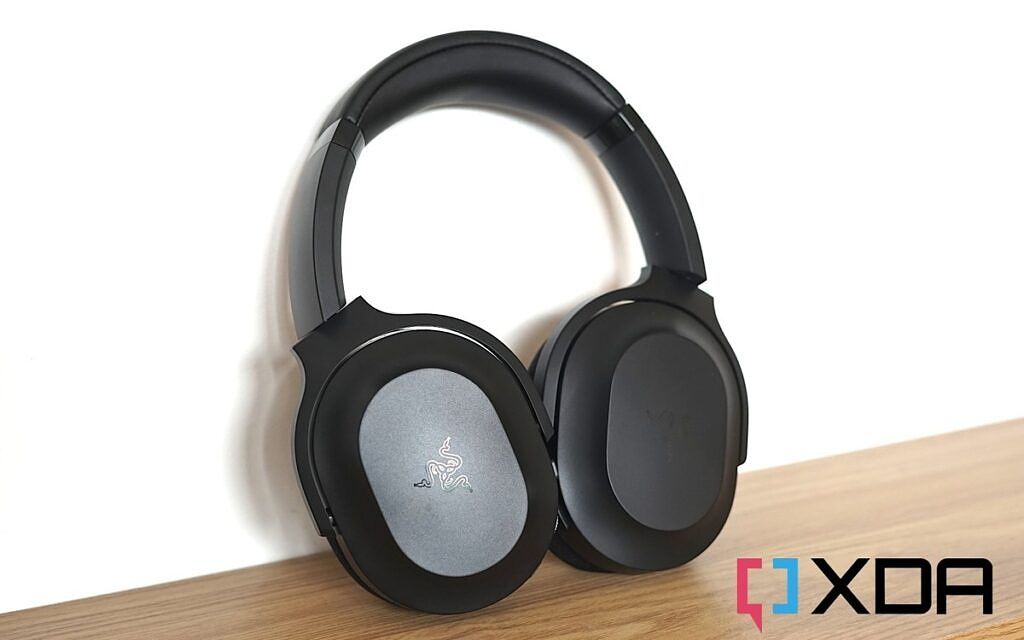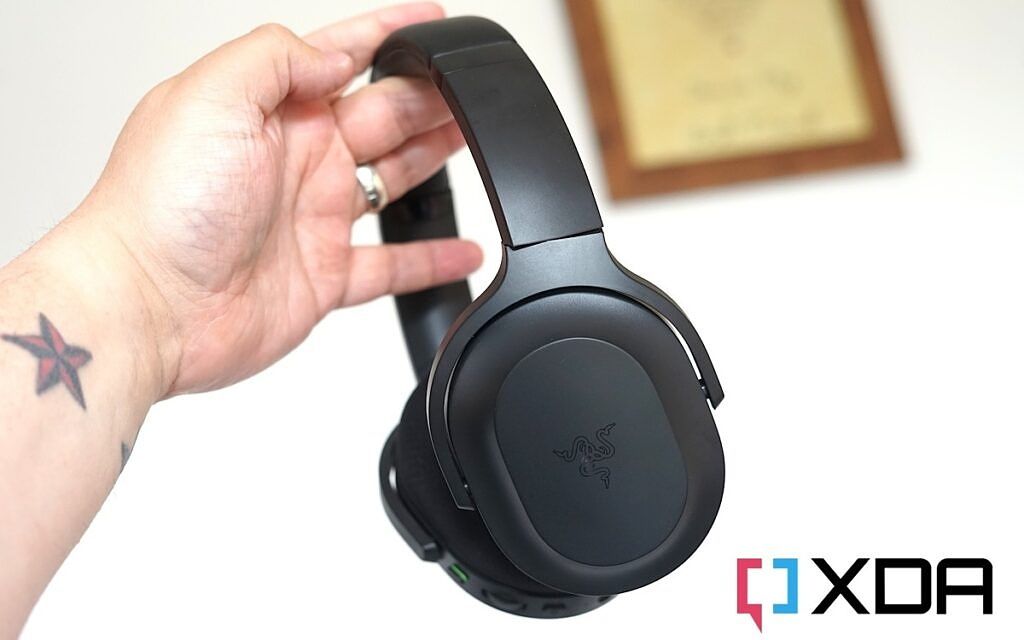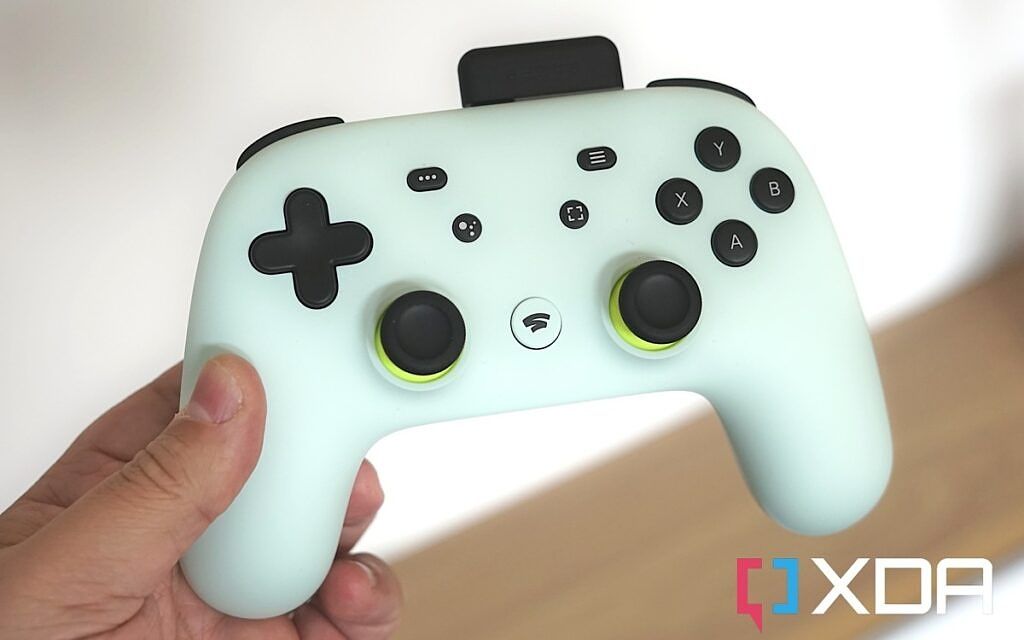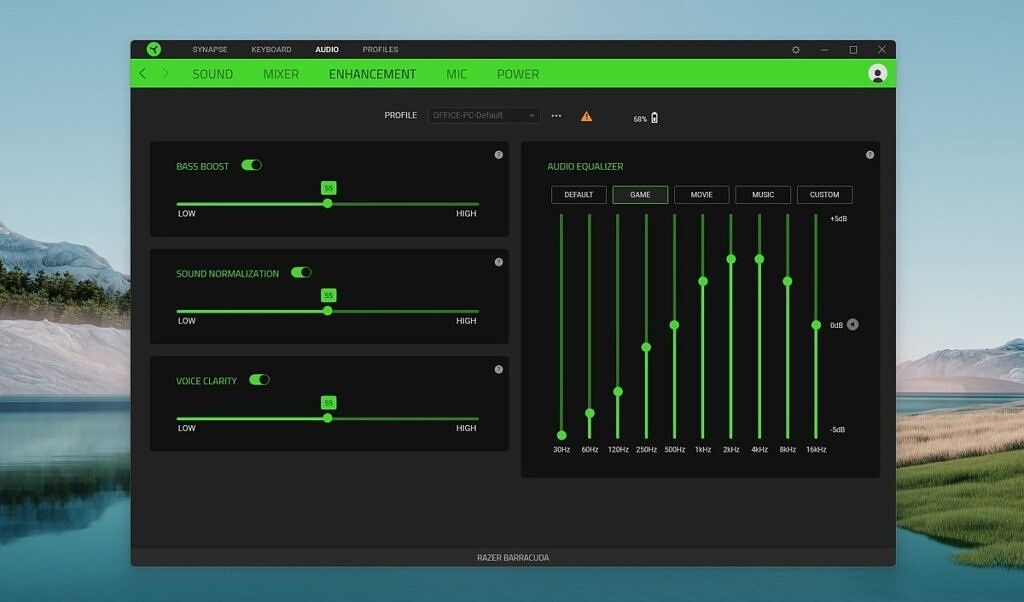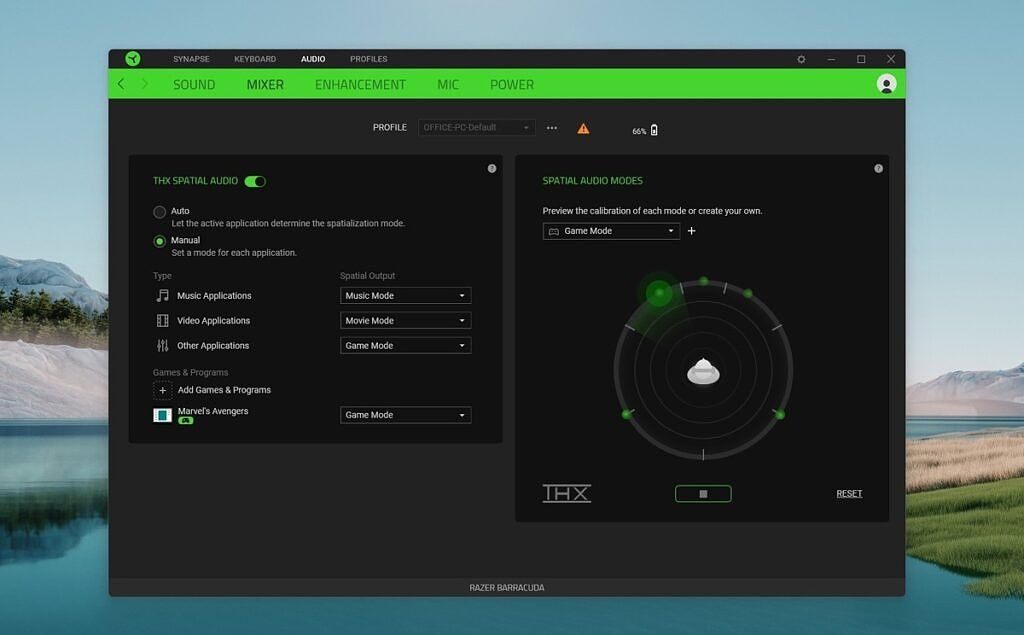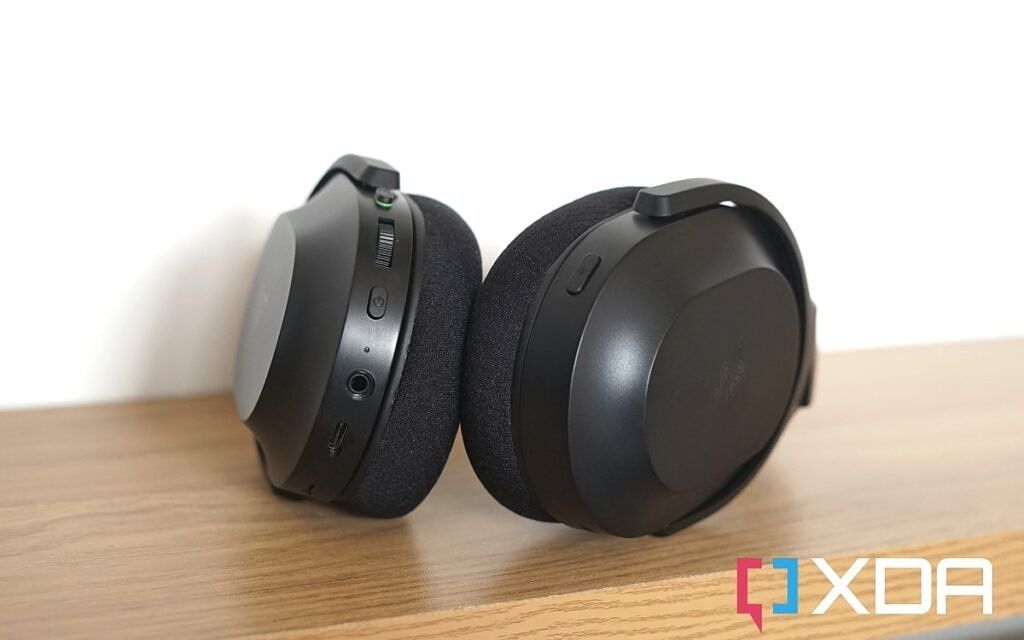Choosing the best gaming headset can be a bit of a minefield. There's a frankly absurd amount of choice out there, with something to suit every budget and every need. Razer alone can probably find something to suit you, and that might just be its latest release.
The Razer Barracuda is a family of three headsets, with a budget model joining two higher-end offerings. The one we have here is the middle of the three and is just known as the Razer Barracuda. The Barracuda X is the budget model while the Barracuda Pro is the all-singing all-dancing headline act.
But for most people, the sweet spot will be this one. It's a wireless headset packing Razer's latest and greatest and has a couple of really important quality-of-life features that are enough on their own to make it worth your while getting one. The Barracuda feels like a gamer-fied version of Razer's Opus headphones, and that's what makes this headset so good.
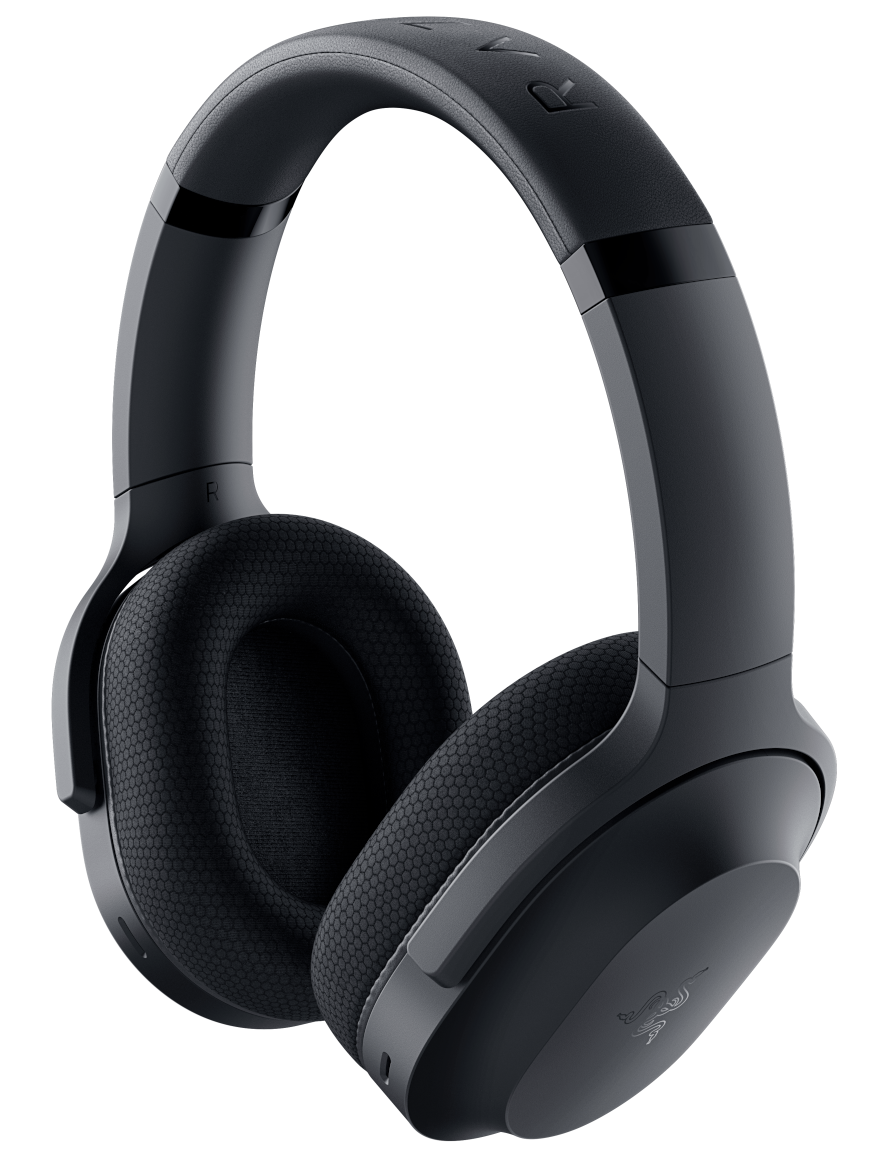
Razer Barracuda
Razer's newest wireless headset blurs the line between gaming and regular headphones more than ever.
Navigate this review:
Razer Barracuda pricing and availability
The Razer Barracuda is available to order from May 31 from Razer's own store as well as third parties such as Best Buy for $160. If you're interested in the Barracuda X or the Barracuda Pro, those, too are available to order from May 31 from the same retailers.
The Barracuda X will cost $100 while the flagship model Barracuda Pro is the priciest of all at $250. All three can be used cross-platform, though none support the necessary wireless protocols needed for Xbox.
Razer Barracuda specs
|
Razer Barracuda |
|
|---|---|
|
Frequency response |
|
|
Drivers |
|
|
Connection type |
|
|
Ear cushions |
|
|
Microphone frequency response |
|
|
Microphone pickup pattern |
|
|
THX Spatial Audio |
|
|
Battery life |
|
|
Weight |
|
|
Price |
|
About this review: This review was written after testing a Razer Barracuda, provided by Razer, over a period of about a week. Razer did not have any input in this article.
Design and features: Taking a leaf out of the Opus playbook
- Subtle design, taking inspiration from the Opus headphones.
- No RGB!
- Supports wireless over 2.4GHz via USB-C dongle or Bluetooth 5.2
I've used a lot of Razer headsets. And while they're usually very good headsets, they also look exactly like a gaming headset. I also own a pair of Razer Opus X headphones which I enjoy very much, not just because they're bright green. Razer does good work with audio, but nobody wants to go outdoors with a Kraken on their head anymore.
So, side-by-side with the Opus, you can see the design direction Razer went in. This is a gaming headset that looks more like a premium set of headphones than a garish, "look at me" mess of RGB and enormous ear cups. In fact, nothing on the Barracuda lights up at all aside from the power LED. There's an elegance and subtlety to this gaming headset and I like it very much.
It is a little heavier than say, a Razer BlackShark V2, but not what you would ever call heavy. It's mostly built from sturdy-feeling, matte plastic. It gets a bit fingerprinty, but it's solid. I would actually say the Barracuda feels better put together overall than the Audio Technica ATH-M50X headphones that I wear every day and cost about the same.
Besides the tasteful design, the other big thing Razer did to make the Barracuda more tolerable for non-gaming purposes, is to remove a protruding microphone. It doesn't detach or retract, or hang there from the side of your face, it doesn't exist. There is still a microphone on the Barracuda, but it's just permanently part of the earcups. Again, as you would get on the Opus headphones, only better. This is still a gaming headset after all.
The Razer Barracuda also gets extra points for wirelessly supporting just about every platform imaginable. Except for Xbox. You can't go wireless on Xbox, but Razer includes a 3.5mm cable so you can hook it up to your controller. For wireless use, you have two choices, and you get to use them, both seamlessly.
The first is good old Bluetooth, perfect for hooking up to a mobile device or the Nintendo Switch. The second is Razer's HyperSpeed wireless with a little USB-C dongle that supports PC, PlayStation 5 (and PS4 if you use the USB-A to USB-C adapter cable), USB-C enabled phones and tablets, and even, drum roll please, Google Stadia.
In the grand scheme of things the last one is a happy coincidence, Razer certainly hasn't mentioned it on the box. But the fact that the Barracuda is one of only a very small number of headsets that uses a USB-C dongle means you can attach it to the Stadia controller for game audio and microphone. It works an absolute treat. Thanks to Razer SmartSwitch, a simple double press of the dedicated button on the headset lets you go between the dongle and Bluetooth.
The Barracuda really is a gaming headset for all occasions, though. Sure, Xbox's first-party wireless protocol means you have to use a cable with your Series X like an animal, but Razer didn't exclude anyone. It's one of the most cross-platform-friendly and modern gaming headsets there is right now.
Quality sound for games, movies, and music
- Integrated microphone rather than a traditional boom mic.
- The microphone quality is a bit poor.
- Sound quality is excellent, with plenty of customizations.
- THX Spatial Audio for Windows PC users.
Sound is where the biggest difference happens between the Razer Barracuda and the more expensive Barracuda Pro. The additional $90 for the Pro nets you hybrid ANC, additional THX goodness, and improved drivers.
The regular Barracuda is hardly a slouch, though. Razer has used its TriForce Titanium 50mm drivers to power the headset and on the PC you get THX Spatial Audio as well. This isn't new with the Barracuda, but it's one of those defining features that separates it from a regular pair of headphones.
You get the usual settings customizations in Razer Synapse on the desktop but there's also a mobile app to tune it to your tastes from your smartphone. THX Spatial Audio requires Synapse to work, but it will happily just sit there in the background.
As far as the sound goes, I'm impressed. This is the first headset in some time I've spent possibly more time testing against music and movies than gaming, and it stands up against the Opus headphones.
The sound is powerful and clear and there's naturally plenty of low end if you want it. When it comes to gaming, Spatial Audio provides excellent directional information, and the sound stage is overall impressive. It's immersive, passing along every explosion and shooty bang bang, while also handling more delicate sounds with ease. I'm particularly impressed by how clear audio in racing games seems to be. Playing F1, for example, it's crystal clear which side of the car a particular noise is coming from.
I would say it's an improved sound overall from some of Razer's older headsets, and I'd certainly place it above the Kraken in the hierarchy. The fact that the Barracuda handles music better than most gives it a definite edge.
In the past, the microphone quality has been the area I've been most critical of on Razer headsets, so I'll admit to some trepidation. Alas, it's still easily the weakest area of the Razer Barracuda by some margin. The sound is clear enough, but it sounds like you're on the phone. Out of the box with no additional settings is probably where you want to leave it, I found adding even noise cancellation would make the quality dip further. For content creators, this is definitely not, but for party chat, even phone calls, it's serviceable. Your buddies will hear you, but for any kind of quality, you will still want a dedicated microphone. It's a shame when the rest of the headset is so good.
Check it out for yourself in this sample clip.
https://w.soundcloud.com/player/?url=https%3A//api.soundcloud.com/tracks/1278472726&color=%235b5959&auto_play=false&hide_related=false&show_comments=true&show_user=true&show_reposts=false&show_teaser=true&visual=true
Who should buy a Razer Barracuda?
- You should buy the Razer Barracuda if you play on PC, mobile, Nintendo Switch or even Stadia
- You shouldn't buy the Razer Barracuda if you're an Xbox player as it doesn't support the right wireless protocol.
- The Barracuda pulls double duty for anyone who also wants a great pair of wireless headphones for music.
The Razer Barracuda is an extremely interesting gaming headset. On one hand, it's comfortable, it sounds great and it lasts the course with up to 40 hours of battery life. Competitive gamers will enjoy THX Spatial Audio, and everyone will appreciate being able to use this headset as a regular pair of headphones without looking like a goofball.
The added interest is in Razer's support of basically every platform, including one that could easily be seen as an accident. USB-C is the new standard, and that simple feature on the dongle means you can get the best wireless audio performance from basically any device. Sorry, Xbox.
If I was picking, I'd like it to be a little lighter and a tad wider on the ears. It's also a little tough to tell for sure if the microphone is muted or not. The mute button is quite shallow and it's not immediately obvious which state it's in. It would have been handy to have some audio feedback in the ears every time you mute/unmute so you know for sure which you just did. Especially since you get such audio feedback using SmartSwitch. And of course, if microphone quality is important, you will need either a dedicated mic or to look elsewhere. Razer, please, make better headset microphones.
$160 isn't an insignificant investment for a gaming headset but I think this one is worth the outlay. It's a terrific all-rounder, and unless you absolutely need ANC, save $90 over the Barracuda Pro and snap this one up instead. The Barracuda proves you can buy a gaming headset and use it as your everyday wireless headphones.

Razer Barracuda
A great gaming headset that doubles as premium wireless headphones, packed with great sound and a subtle, classy design.

